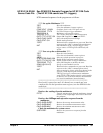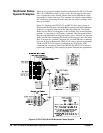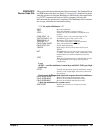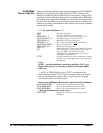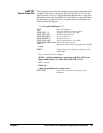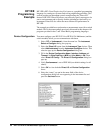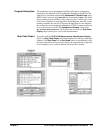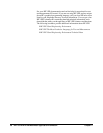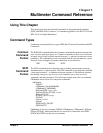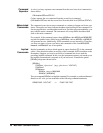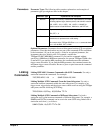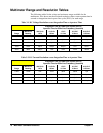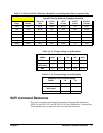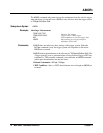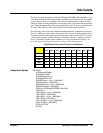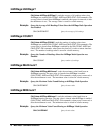
Multimeter Command Reference 67Chapter 3
Chapter 3
Multimeter Command Reference
Using This Chapter
This chapter describes the Standard Commands for Programmable Instruments
(SCPI) and IEEE 488.2 Common (*) Commands applicable to the HP E1312A and
HP E1412A 6½-Digit Multimeters.
Command Types
Commands are separated into two types: IEEE 488.2 Common Commands and SCPI
Commands.
Common
Command
Format
The IEEE 488.2 standard defines the Common commands that perform functions like
reset, self-test, status byte query, etc. Common commands are four or five characters
in length, always begin with the asterisk character (*), and may include one or more
parameters. The command keyword is separated from the first parameter by a space
character. Some examples of common commands are shown below:
*RST *ESR 32 *STB?
SCPI
Command
Format
The SCPI commands perform functions such as making measurements, querying
instrument states, or retrieving data. The SCPI commands are grouped into command
“subsystem structures”. A command subsystem structure is a hierarchical structure
that usually consists of a top level (or root) command, one or more low-level
commands, and their parameters. The following example shows the root command
CALibration
and its lower-level subsystem commands:
CALibration
:COUNt?
:LFRequency 50|60|MIN|MAX
:LFRequency? [MIN|MAX]
:SECure:CODE <
new code>
:SECure:STATe OFF|ON, <
code>
:SECure:STATe?
:STRing <
quoted string>
:STRing?
:VALue <
value>
:VALue?
:ZERO:AUTO ON|OFF
:ZERO:AUTO?
CALibration
is the root command, COUNt?, LFRequency, LFRequency?, SECure,
STRing, STRing?, VALue and VALue? are second level commands, and CODE,
STATe and STATe? are third level commands.



